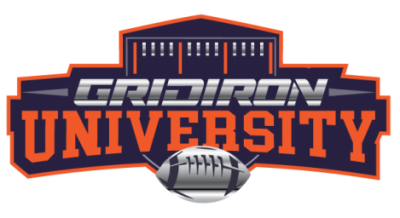It is important for recruitment that you are knowledgable about the process and are prepared ahead of time. Being proactive is always a best practice for any given situation, but it is even more important if you are or plan to be seeking recruitment. Academics, football IQ, highlights, experience, and other factors account for what schools are looking for in potential athletes for their programs. Below is a starter list of things to be aware of.
Have a plan
As an athlete you never go into an important game or match without a game plan. Plotting out your strategy helps you win, and it prepares you for any unexpected twists that you might encounter. Consider the recruiting process to be one of the biggest competitions of your life. It’s one that requires a perfect plan of attack.
Develop a Measurable Action Plan (MAP)
It’s extremely important for college recruits to be well organized, and that’s why a Measurable Action Plan is vital. A MAP provides a timeline for you to follow during each step of the recruiting process. It should include athletic goals, academic goals, a growing list of colleges that you are interested in, a checklist of coaches that you need to get in contact with, and much more.
Having a MAP can ensure that you’re being thorough. And being thorough is the key to finding the most scholarship opportunities at schools that are a good fit for you, and earning as many scholarship dollars as you can.
When does the football recruiting process start?
An GIURS scout can help you put your recruiting action plan in motion after a quick scouting evaluation. Getting an early start makes the recruiting process much more manageable in the long run.
1. The recruiting process started yesterday! Competition for football scholarships is very intense. Coaches identify talented athletes very early in their high school careers—in fact, 84% of Division I prospects are identified by the end of sophomore year. This means the advantage goes to student athletes who are active, informed and have a plan.
How do I get discovered?
2. College coaches scout based on verified information from neutral, independent sources like GIURS. Play your game well and you’ll be discovered—right? Wrong. College football coaches identify prospects using online tools and databases well before they show up to scout a game in person. Occasionally someone else will catch their eye, but they are primarily there for the prospects they have already identified.
How do coaches evaluate prospects?
3. The Internet is your best recruiting tool. College coaches don’t have time to attend every high school football game. The majority of them identify top prospects by watching highlight videos that they request or receive from a trusted third party. This is what will convince a coach to come out and watch you in person.
Where am I qualified to play?
4. Less than 1% of student athletes get a full ride to a D-1 school. Roughly 80% of football scholarships are offered by schools that do not compete in NCAA Division I football, so set your expectations accordingly.
What is my coach’s role?
5. Don’t leave your future solely in the hands of your high school coach. Getting recruited is a full-time job, and your football coach has a whole team of players who will be asking for their help. One coach does not have the time, resources, or relationships to get a scholarship for each of his players.
